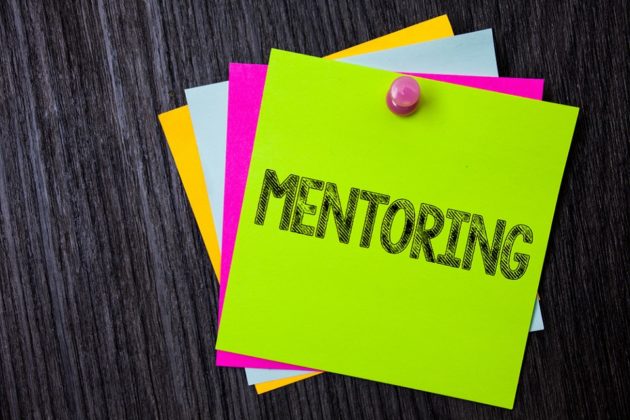Perform at your peak with mentoring
One of the habits of successful people is to talk to their mentor. Steve Jobs, CEO and co-founder of Apple Computer, was Mark Zuckerberg (CEO of Facebook)’s mentor and Maya Angelou mentored Oprah Winfrey.
Great mentors listen, inspire and make you feel empowered. They can help you think differently, get unstuck and assess where you are in your career. Mentors are also a great way to be accountable for the next steps you have in mind.
“Getting a mentor who is aligned with your needs for personal growth is a vital step. A mentor cannot give advice – at least not good advice – about a problem that they haven’t solved themselves,” said Tony Robbins, American author, coach, speaker, and philanthropist, well known for mentoring huge groups of people.
“If you want to get ahead in your current profession, make connections and learn insider information that can give you a head start on the competition, you need to find a mentor.”
Mentors needed
Getting a mentor is about building relationships. Last year, we matched more than 500 GCS colleagues to be mentors and mentees, and we know it has been hugely valued.
Today we’re calling for more mentors. Martina Arduino, GCS Mentoring Programme lead explains:
Being a mentor is a great, rewarding experience, that helps you develop your leadership, communication and listening skills. It improves your confidence, it helps grow your network and it also gives you 10 CPD points!
We will do our best to match every applicant with a suitable mentor or mentee within 2 months of applying.
However, this is only possible if we receive enough mentor applications to match our many mentees, so we really encourage everyone in GCS to apply to be a mentor on the programme. Join the programme today!

A mentee’s point of view
A GCS mentee, Sophie, Communications and Engagement Manager, said:
“S. became my mentor at an extremely helpful time in my career as I was looking for new opportunities but was unsure of the next step. She really listened to me and built up my confidence. By sharing experiences from her own career and how she had approached situations, I was able to develop my own knowledge and understanding. She helped me on a practical level. For example with a Google Analytics issue, but also on a career level, including sharing articles on improving interview technique and power poses!
During my mentorship with S. I applied, interviewed for, and accepted a new job. S.’s motivational emails and chats played a large part in me having the confidence to do all three! I am really grateful to have had the opportunity to get to know S. and for all the time she spent speaking to me when I knew she was also juggling her busy job and homeschooling! Thank you!”
A new way to look at learning
As part of your learning and development, you are expected to reach a minimum of 30 Continuing Professional Development (CPD) points per year. Most of your CPD points should come from ‘on the job’ learning – roughly 70%. 20% should come from learning from relationships (like mentoring) and the final 10% through formal training and resources.
Apply to the GCS mentoring programme and start performing at your peak.
- Image credit:
- Shutterstock/Artur Szczybylo (1)
